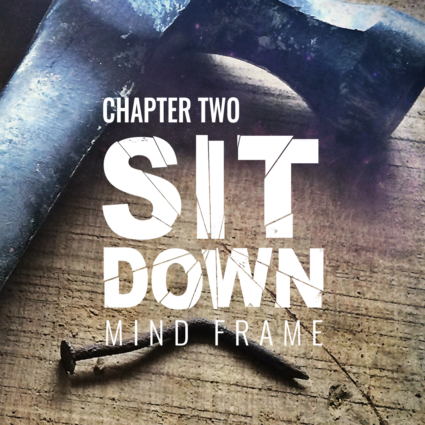Chapter Two: Sit Down


On this episode of Mindframe, we have another unique Sit Down, where you get the inside scoop on the show in a way you can’t get it from anyone else! As always, you’ll hear your host with the most, Zach Smith, ask questions of Dave and Brent. This time about Chapter 2. If you’re listening, thank you so much for the support! It helps us keep the wheels moving and means the world to us. If you are interested in listening, consider become a Patron. You can find us a patreon.com/themindframepodcast to learn more.
What questions do we cover this time?
-Are we allowed to talk about Teddy and Josephine now? How does he leave work at the hotel and return home fifty years in the past?
-“The good type of (insert race here)”? How often were you told that/to be that growing up?
-We get thrown some car names. Are you a car guy at all?
-This first scene with Teddy reminds me of a Hank Hill sort of guy: A man that likes to have everything in the right place. Is that how you see him as you write him?
-Teddy seems like a good dude. Do we get anything else on why he could not settle down with a significant other?
-I’m making other connections. Feel free to either comment or not comment on my theory: Old Mack sends a wire, or in other words a telegram, to Teddy, who lives in the valley. He’s building An Arch. A gateway. He’s the old man from the prelude, and we know Teddy was mentioned in that chapter as well.
-The Quay symbol: Is this something we should pay attention to/look out for in the future?
-The mention of “You are there” is fun because it feels like parallels with the story and the different time periods viewed by the character in the prelude. Was that purposeful?
-Long question: Time fluctuations become apparent in this chapter, but rather than try to give anything away, I want to ask a different question: When constructing something difficult—and when I say difficult I mean something the audience will have to invest time and attention to—do you ever worry it may turn the audience off? Or do you not worry about that? You and I both appreciate authors who write more difficult works and leave it up to the audience to figure out. Do you hold that same philosophy? Often people interpret “difficult” as “less commercial.”
-On the note of difficulty: What do you consider a “great” work that a reader might find difficult? What do you think is a bad work that is also difficult to read? What do you think is the difference?
-There’s a lot of set up and hints at important things to come. What would you suggest are the one or two things the audience should pay the most attention to in this chapter?
-Brent you had a question about family and background info in the chapter?
-Was there any specific reason the Philippines were chosen? I.e., G.I.’s were in many areas of the South Pacific during WWII.
-Not a question but a “SCREW YOU” for describing all that delicious Pilipino food I can’t eat.
-Okay, I lied, one question: Any favorite Pilipino foods?
-The mention of children made me think: You started writing this work before Von was born. Has helping to raise a child changed your perspective when writing?
